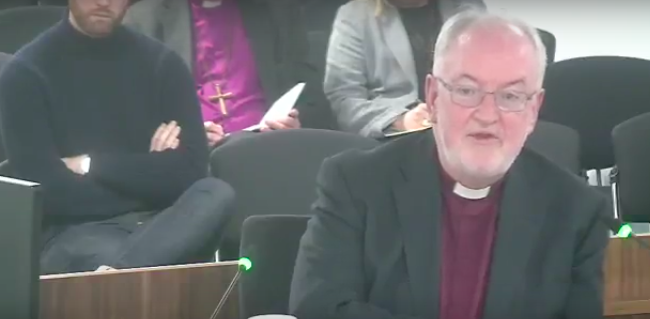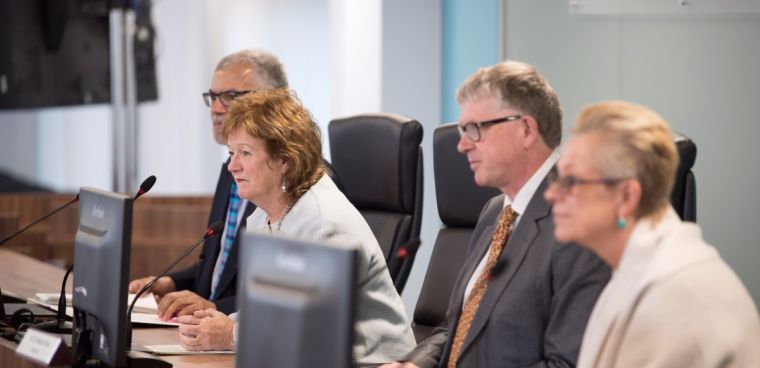Bishop admits 'hunch' about paedophile priest but says he was powerless to stop him
The Church of England's 'toothless' monitoring of paedophile priests means abusers could go on leading services even after being officially barred from ministry, an inquiry heard today.
The independent inquiry into child sexual abuse is hearing evidence on how the diocese of Chichester responded to allegations of abuse as a case study for the wider Church of England.

A former bishop accused of failing to report a convicted paedophile priest admitted he had a 'hunch' Roy Cotton was 'a villain' but said he was powerless to stop him.
Wallace Benn, the former bishop of Lewes, said that he was worried about Cotton, who died in 2006 before he could be brought to justice, for several years but still allowed him to minister and have unsupervised access to children.
Even after Cotton was eventually told he could not take public services the extent of the restrictions on him was a 'stern word', the inquiry's panel heard, as lead counsel Fiona Scolding QC described the Church's monitoring system as 'toothless'.
When asked how he enforced the belated ban on Cotton, Benn said: 'You hope that a clergyman will take a command of a bishop seriously. But if he is not prepared to take the commands of the Lord seriously he is probably not going to listen to a bishop.'
Cotton was convicted of child sexual abuse in 1954 but was considered suitable for ordination in 1967 by then archbishop of Canterbury, Michael Ramsey, as a 'man of considerable ability...free of any trouble for 12 years'.

Benn, who was bishop of Lewes from 1997-2012, said Cotton told him that a 'false allegation' had been made against him but insisted he did not know the reality was that Cotton was convicted for abuse.
However, Benn admitted he did not believe Cotton but was told by his senior bishop, Eric Kemp, he had been 'badly handled' by the police and he should be allowed to carry on ministering.
Despite his ongoing concerns about Cotton Benn said he had no evidence and was 'certain' he did not know of his previous conviction.
He strongly denied previous evidence that suggested he knew of Cotton's conviction and said 'you can't write off a good guy because of a bad day'. Bishop Benn insisted that was in regard to another matter and was nothing to do with his approach to safeguarding.
'My concern in safeguarding has always been for the wellbeing of the victim who have to cope for the rest of their lives with the shocking experiences that they have been through,' he said.
He added it was 'tremendously worrying' that Cotton had been ordained in the first place and accused senior clergymen at the time of covering up his previous conviction.
'It makes scandalous reading,' he said of documents revealing how Cotton was ordained. 'It is a shocking revelation of the number of people involved and the suppression at that point of a conviction about him.
'I think it is something we have to hold up our hands and say, "That's a period and an event we ought to be throughly ashamed of."'











